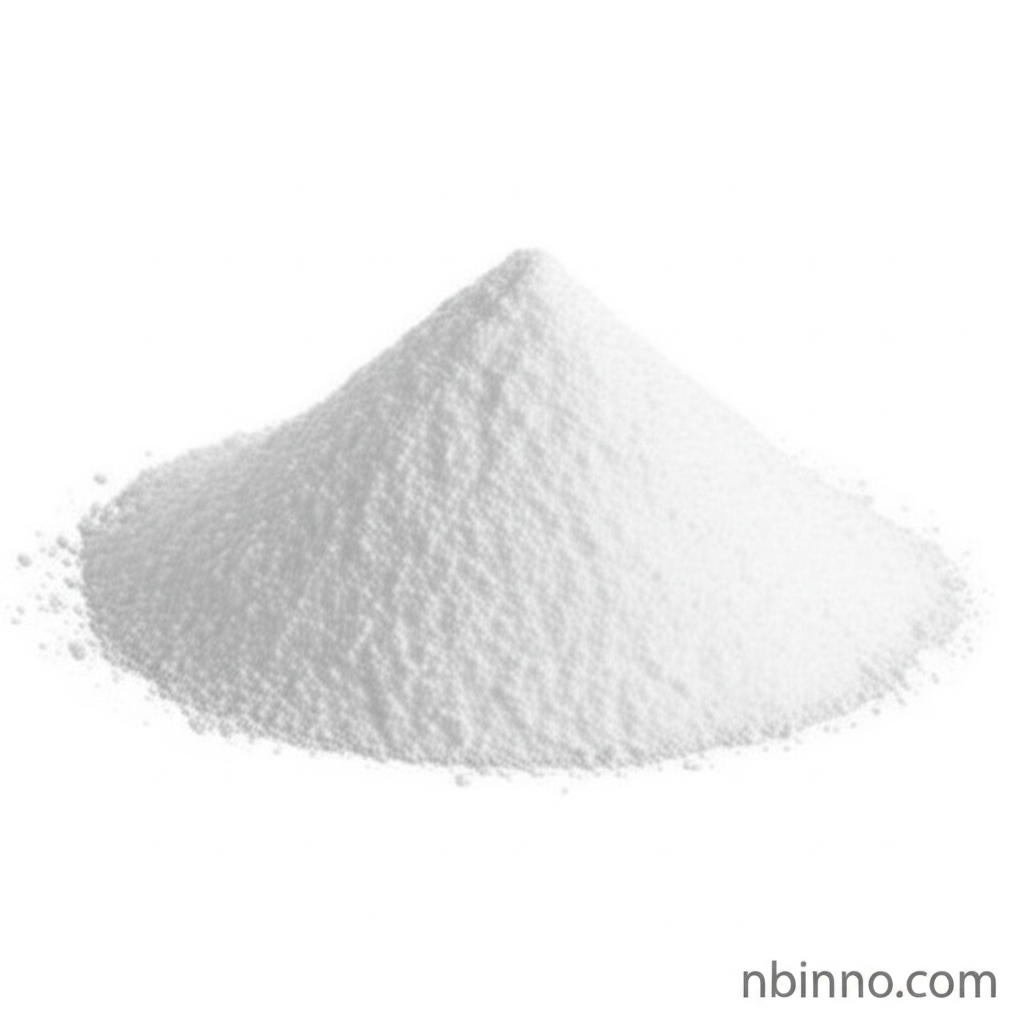Dicetyl Peroxydicarbonate: A Key Polymerization Initiator
Discover the properties and applications of Dicetyl Peroxydicarbonate (CAS 26322-14-5), a vital component in polymer production.
Get a Quote & SampleProduct Core Value

Dicetyl Peroxydicarbonate
Dicetyl peroxydicarbonate (CAS 26322-14-5) is a critical organic peroxide used as an initiator in various polymerization processes. Its ability to decompose and generate free radicals makes it indispensable for initiating the chain reactions necessary for forming polymers like vinyl chloride and acrylates.
- Initiating Vinyl Chloride Polymerization: Dicetyl peroxydicarbonate is an effective initiator for the copolymerization of vinyl chloride, a fundamental process in the PVC industry. Understanding dicetyl peroxydicarbonate vinyl chloride polymerization is key for manufacturers seeking efficient production methods.
- Acrylate and Methacrylate Applications: This compound also serves as a reliable initiator for acrylates and methacrylates, contributing to the diverse range of polymers used in coatings, adhesives, and other industrial applications.
- Heat Sensitivity and Safe Storage: Being a heat-sensitive material, proper handling and storage of dicetyl peroxydicarbonate are paramount. Safe storage of dicetyl peroxydicarbonate involves stringent temperature control measures to prevent decomposition and potential hazards.
- Understanding Organic Peroxide Behavior: As an organic peroxide, dicetyl peroxydicarbonate exhibits specific reactivity. Knowledge about organic peroxide polymerization and its associated risks, such as dicetyl peroxydicarbonate heat sensitivity, is essential for safe industrial use.
Key Advantages
Efficient Polymerization Initiation
Dicetyl peroxydicarbonate efficiently initiates the polymerization of monomers like vinyl chloride, leading to higher reactor efficiency and better product yields. Exploring dicetyl peroxydicarbonate applications reveals its broad utility.
Controlled Decomposition for Safety
While sensitive to heat, its explosion hazard can be mitigated by mixing with inert solids, a crucial aspect of dicetyl peroxydicarbonate safety protocols. Understanding dicetyl peroxydicarbonate decomposition hazards aids in preventing incidents.
Versatile Monomer Compatibility
Its suitability for a range of monomers, including vinylidene chloride, acrylates, and methacrylates, underscores its versatility in the polymer industry, making it a sought-after chemical intermediate.
Key Applications
Polymer Production
As a primary polymerization initiator, it is fundamental to the large-scale production of various polymers, enhancing the overall quality and properties of the final plastic materials.
Vinyl Chloride Polymerization
Crucial for the synthesis of PVC, this compound plays a vital role in the manufacturing of pipes, films, and other essential plastic products.
Acrylate and Methacrylate Synthesis
Its application extends to initiating the polymerization of acrylates and methacrylates, leading to materials used in coatings, adhesives, and specialty plastics.
Chemical Synthesis Intermediate
Beyond direct polymerization, it can serve as an intermediate in broader chemical synthesis pathways, highlighting its importance in the fine chemical sector.
